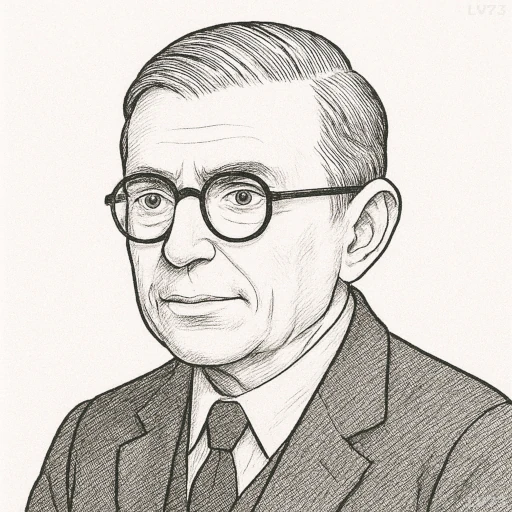“Man is not the sum of what he has already, but rather the sum of what he does not yet have, of what he could have.”

- June 21, 1905 – April 15, 1980
- Born in France
- Philosopher, novelist, playwright
table of contents
Quote
“Man is not the sum of what he has already, but rather the sum of what he does not yet have, of what he could have.”
Explanation
In this quote, Sartre asserts that human identity and value are not defined by what one has already achieved or accumulated, but by the possibilities and potential that lie ahead. Existence, for Sartre, is not about the fixed qualities or possessions that define a person at any given moment, but rather about freedom and choice. A person is not limited to their past or present circumstances; instead, they are defined by the future potential that remains open to them. Sartre’s existentialism emphasizes that humans are always in the process of becoming—our identity is always in flux and shaped by the choices we make, the actions we take, and the possibilities we pursue.
This view rejects the idea that individuals are confined to a static essence or preordained destiny. Instead, human beings are free to define themselves through their projects and actions, continually creating and redefining who they are. Sartre’s philosophy is rooted in the belief that we are not bound by the past or by external definitions, but that we are always free to act, choose, and create meaning in our lives. This idea calls attention to the importance of personal agency—that it is our future potential and choices that give us our true value, rather than the accumulation of past accomplishments or possessions.
In the modern context, this quote can be applied to the idea of self-improvement and personal growth. In a world that often emphasizes status, accomplishments, or material wealth as markers of success, Sartre’s words encourage us to look beyond what we have already achieved and focus on what we are still capable of becoming. This perspective highlights the freedom we have to continue shaping our future, to pursue our dreams, and to grow into the person we could be. It encourages us to understand our identity not as something fixed by past actions or possessions, but as something continuously formed through choices and possibilities still to be realized.
Would you like to share your impressions or related stories about this quote in the comments section?
